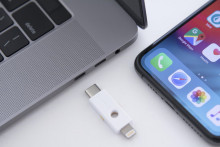Nissan EV app password reset prompts user panic
Nervous Nissan UK drivers were today assured by the car maker that Connect EV app log-in failures are related to a migration of data onto a new platform rather than anything more nefarious.
Customers contacted The Reg after receiving what one described as a slew of password resets and some speculated on the potential cause.












































































